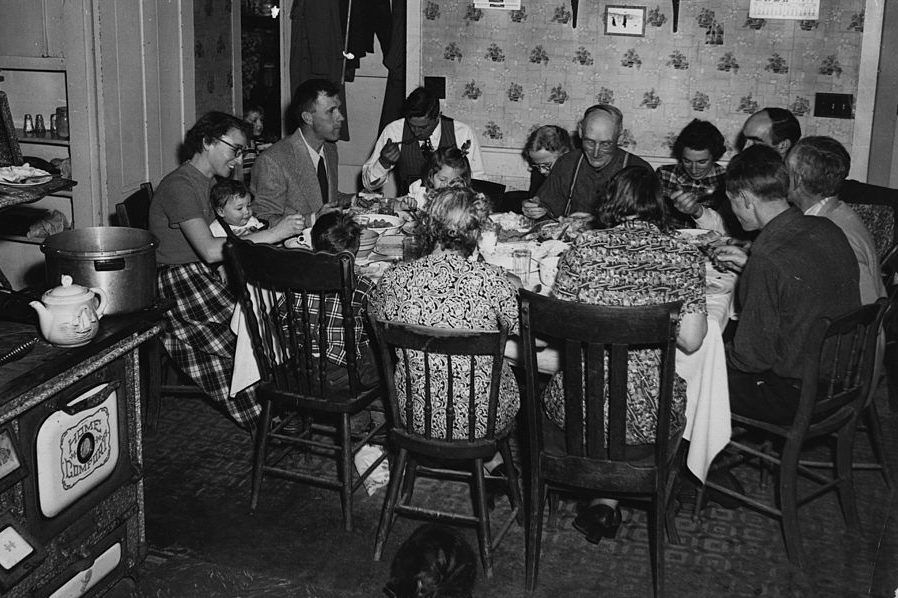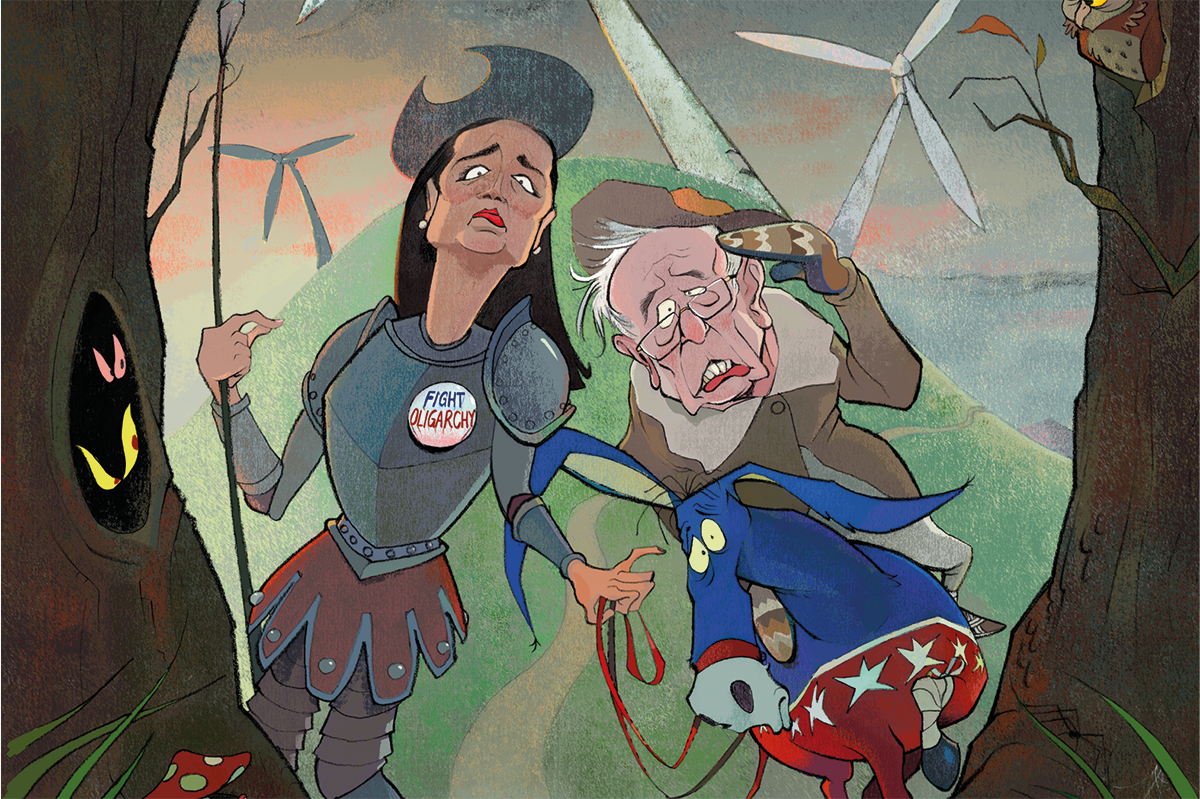Like many families, mine is home to a diverse array of political orientations, ranging on an ideological spectrum from Calvin Coolidge to somewhere around Attila the Hun. In 2021, this means arguments can get quite heated. Should the government subsidize young families? Should tech companies be regulated? Should America reconsider its support for Israel? Should you, personally, get the vaccine? The first half-year of the Biden administration has already given even broadly right-of-center communities plenty to in-fight about.
My left-leaning friends who have also spent more time with their families during the pandemic report a similar phenomenon: their good boomer liberal parents are skeptical about critical race theory, for instance, or are suddenly nervous about the national debt. This is not to mention families with even stronger ideological differences, who can’t even chat about the weather without someone bringing up climate change.
After a recent argument with my brother over the demise of Bethlehem Steel reduced me to tears, I knew something in my own approach had to change. Family harmony is more important than being right — or being left, as the case may be. I don’t believe any pundit has read as many self-improvement books about constructive communication as I have. I want to help you fight with your family, a little bit better. Here are some ideas that have worked for me.
My first principle of better family arguments comes from Nonviolent Communication by Marshall B. Rosenberg, a book endorsed by former presidential candidate Marianne Williamson, herself no stranger to debate. The main thing you learn is to separate observation from evaluation. This is a useful tactic in a fight that’s getting heated.
Instead of saying, for example, ‘Public health professionals are morons’, which qualifies as violent communication, you might instead describe specific failures of the CDC. (Since this will take a while, it’s also a good stalling tactic.) I may be tempted to respond to these observations with something like, ‘If you don’t get vaccinated, you will murder our grandparents/die of Covid/ look like an asshole.’ These statements are also violent communication, because they confuse ‘prediction with certainty’. I predict, though I can’t be certain, that this conversation will not proceed constructively. Better to focus on what you personally observe, and how it makes you feel.
While conversations that carefully neutralize your more trenchant opinions are unlikely to result in smashed dishes, there are limits to nonviolent communication. First of all, it produces poor rhetoric, if your goal is to persuade rather than to make peace. Furthermore, it considers reliance on facts and morality inappropriately evaluative, preferring instead a framework of ‘observations’, ‘needs’ and ‘expectations’. Actual violence, for example, would seem difficult to resolve this way. If I kill your pet hamster, is it simply a violation of your expectation that the hamster would be alive? Surely someone is just wrong, at least some of the time.
That may be true, but it’s not very helpful. The next principle for better fights comes from the authors of Difficult Conversations, a classic book from the Harvard Negotiation Project: do not blame. Always examine your own role in the disagreement that led to the conflict, because blame is incompatible with resolution. Though the idea that all parties contribute to conflict leads to some alarming suggestions about, say, workplace sexual harassment and South African apartheid, in general it’s a useful construct. Your dad may have set the bait for a blow-up fight about gun control, but you took it. That’s your part in a ‘contribution system’. Your cousin’s terrible opinions may be her own fault, but they only become the main event at Thanksgiving if you let them. The first two principles help address how fights begin, but why do they get so heated? The authors of Difficult Conversations also have a suggestion about this. Your conflict may seem to be about the capital gains tax, but actually, on some level, it’s about identity, which is, of course, a sensitive topic. We’re used to talking about identity politics within a census-form framework, but identity is deeper than demographics.
Perhaps what’s really on your mind when you argue about COVID statistics is: am I intelligent? Or when you’re disagreeing with your mother about the ideal size and shape of the social safety net: am I good? Or when your blood pressure rises at the mention of birth rates: am I worthy of love? All politics is identity politics, to revise an out-of-date idiom.
The trick here is to spot what identity-based need a particular position serves for your interlocutor, and find another way to respond to it. If my support of generous unemployment insurance makes me feel like a good person, my brother won’t persuade me it’s too expensive by attacking my macroeconomic competence. He’ll persuade me by helping me find another policy approach that addresses my need to feel virtuous. Even if he fails to convince me, I feel affirmed that he believes I’m good, and I’ll still come over for pizza on Friday.
I’m old enough to remember when the COVID threat gave us hope for solidarity: we’re all in this together! That didn’t work out for too long; it’s clear that family disagreements about politics are here to stay. My advice so far has been addressed mainly to the aggressive and overheated arguers among us, to defuse and deescalate.
Finally, I want to encourage the conflict-averse not to avoid arguing altogether. Adversity can actually strengthen a relationship — think of those plane-crash survivors who get married after their shared trauma. Besides, conflict avoidance could deprive your loved ones of your insight and wisdom. After all, let’s be honest: you’re probably right.
This article was originally published in The Spectator’s July 2021 World edition.

























